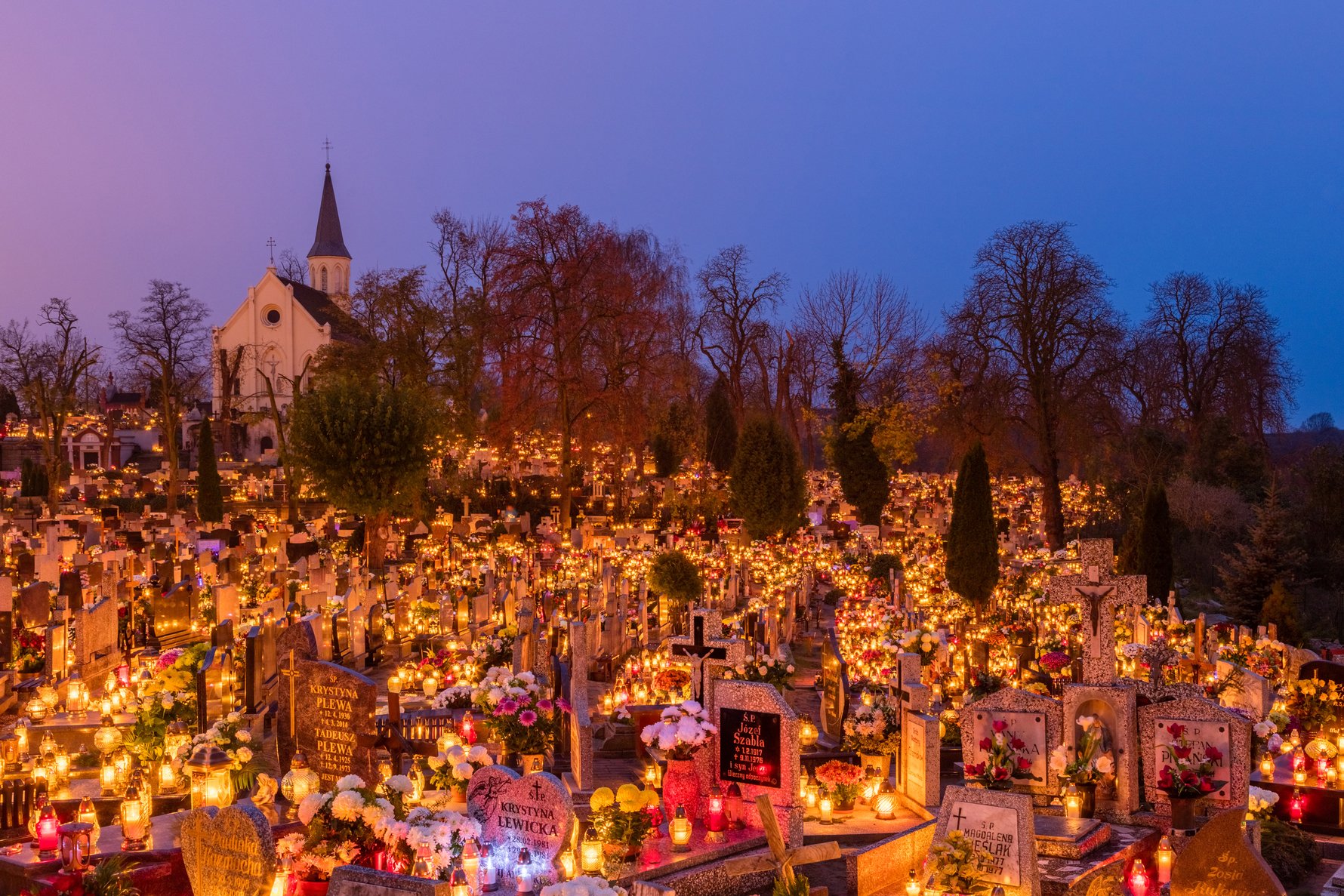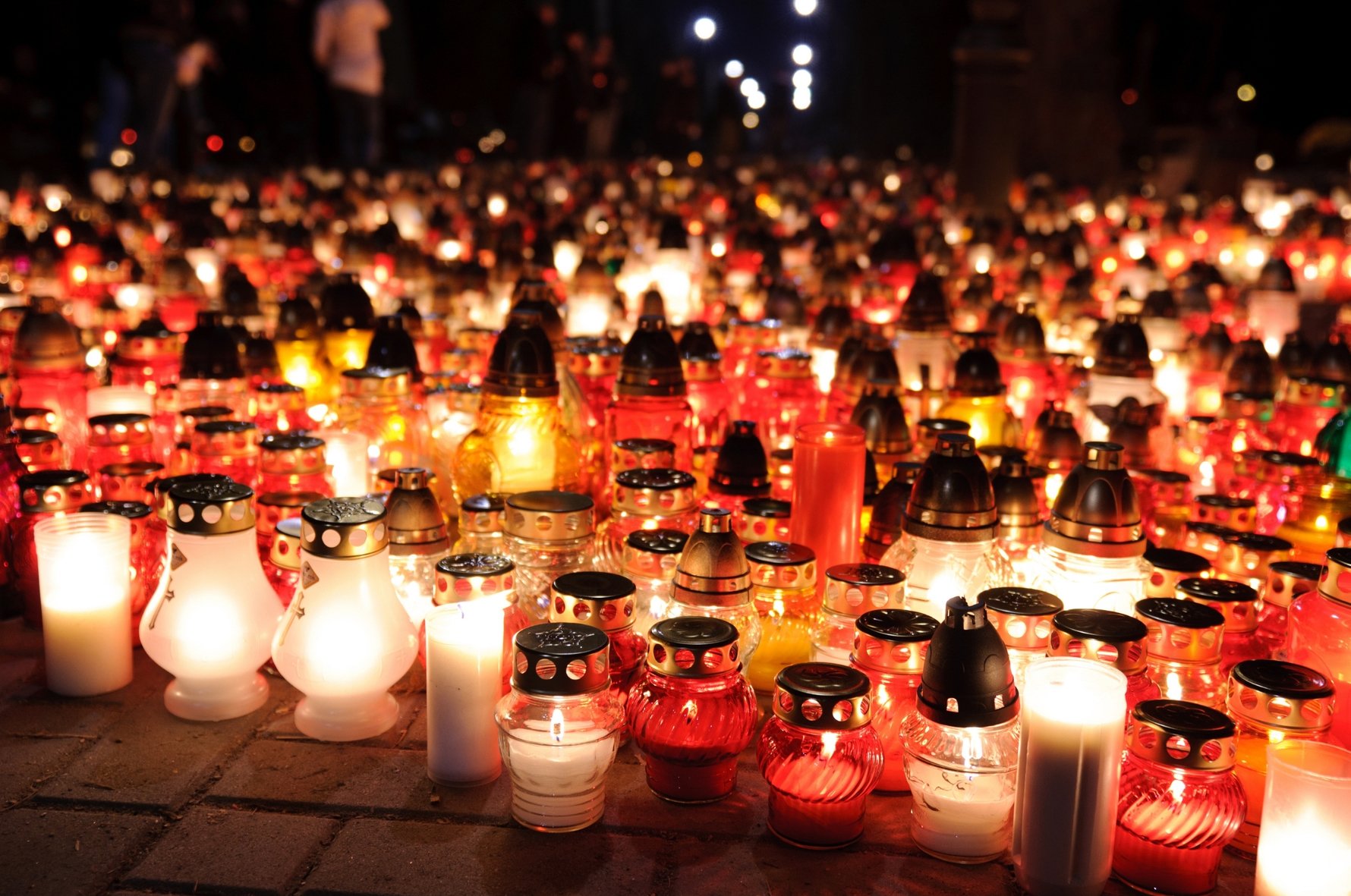While American Halloween traditions - of trick-or-treating, going to costume parties and generally celebrating the spooky or macabre - are becoming increasingly common in increasingly secular Polish society, Halloween in Poland remains a somber (and sober) time to respectfully remember those who have passed away.
As such, anyone expecting to send their kids door to door for candy, or indulge in a rollicking night of costumed debauchery on October 31st, will be in for a letdown. Although you might find some costume parties in student bars and clubs happening the weekend before, by November 1st things get deathly serious (pardon the pun). Known nationally as All Saints’ Day (Dzień Wszystkich Świętych) and All Souls’ Day (Dzień Zaduszny, or Dzień Wszystkich Zmarłych) respectively, Poland dedicates November 1st and 2nd to prayer and paying tribute to the deceased by visiting their graves. [For many familes that includes travelling, and November 1st is designated as a bank holiday to accommodate.] While the difference in tone between western Halloween celebrations and Polish All Saints' Day traditions couldn't be much more stark, witnessing the Polish holiday by visiting a cemetery aglow with thousands of candles on November 1st is an absolute must for anyone visiting Poland during this time.

The Complex Origins of Halloween & All Saints' Day
While the origins of what is referred to as a 'day of Christian solemnity' are somewhat mixed, it's generally agreed that these traditions originated in the far east of the Roman Empire in the 4th century CE. At that time, however, these commemorations of Christian martyrs usually took place around April and May, and the Eastern Orthodox calendar similarly observes All Saints' Sunday after Pentecost in late May/early June. Although this custom had become fairly mainstream in Central and Western Europe by the 5th and 6th century CE, it did not become official until Pope Gregory IV made All Saints' Day an authorised holiday in the Catholic Church in 835 CE. The reasons behind November 1st becoming the designated date are heavily influenced by the customs of Anglo-Saxons, Franks and Celts, specifically those that coincided with the end of the harvest season and the beginning of the 'darker-half' of the year. This period would later became known in western European traditions as 'Allhallowtide,' which began on October 31st with 'All Hallows Eve' (now 'Halloween'), followed by All Saints' Day on November 1st, and concluded on November 2nd with All Souls' Day - a separate day of observance devoted to all other deceased individuals. It should be noted that the Catholic Church's success as a major world religion is often attributed to its ability to adapt local traditions to Christian teachings, and these pagan customs are no different. We also suppose they didn't want any holidays interfering with Easter celebrations!
All Saints' Day in Poland Today
All Saints' Day on November 1st is one of Poland’s most important public holidays, so much so that it was even allowed during the country's communist period (remember, communist ideology typically believes in 'state atheism'). Only transport and emergency service staff are expected to work on Nov. 1st – don’t be surprised to find most businesses bolted shut. Since All Souls’ Day on November 2nd is not a bank holiday, Poles will use November 1st to pay respects to both deceased family and friends and saints as well. For this reason, you'll see whole families descend on graveyards to lay wreaths and light candles for deceased family members, and prayers said at the graveside are meant to help the souls of the dead. It's fair to say that devoutly-Catholic Poland takes these duties particularly seriously and even the graves of the unknown or forgotten are cleaned up and bedecked with candles by strangers. As an outsider, you may not think lurking around a cemetery in the dark is the best way to spend an evening, but it’s incredibly beautiful to see the cemeteries lit up by candles all night long, so wrap up warm and go have a look. While we could wax poetic about the unearthly glow of the immense candlelight, the murmur of prayer and psalms, the subtle smells of the incense, fresh flowers and burning wax, the shades of ravens in the trees, the wet grass and mists, and the surreal duality of the supernaturally-charged, yet tranquil atmosphere, we’d prefer you just experience it for yourself. Remember to take a candle along with you (or buy a few outside the cemetery).



Comments